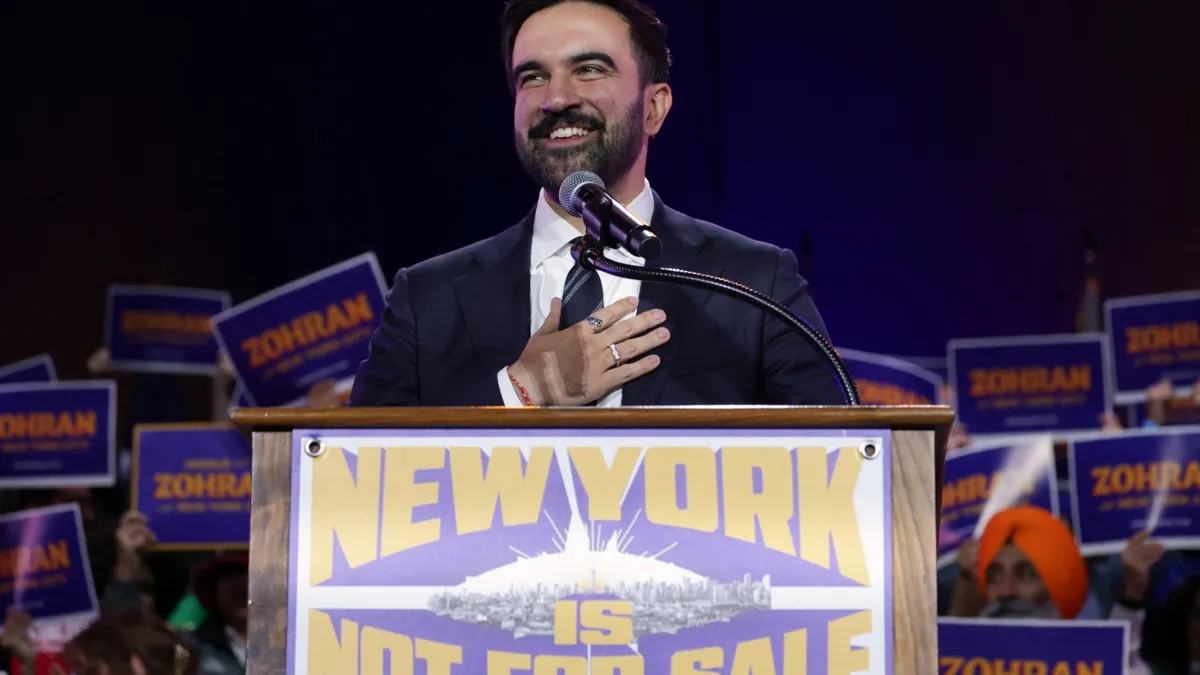
Wall Street's expensive bet against Zohran Mamdani has proven to be a poor investment. New York City's CEOs and influential billionaire business leaders collectively spent over $40 million in a bid to prevent Mamdani from ascending to the role of mayor. With Mamdani's victory now confirmed, reactions among these business leaders vary, ranging from threats to leave the city to a more pragmatic acceptance of the situation.
Kathryn Wylde, head of the Partnership for New York City, an esteemed business organization representing over 300 major employers, provides insight into the current mood. Wylde describes the reaction as akin to the stages of grief. In recent months, she has facilitated meetings between her members and Mamdani. Following his victory, her response was characterized by both practicality and a hint of optimism. “The Partnership works with whoever wins,” Wylde stated. “Zohran has won resoundingly, and we will seek to be his partner in addressing the considerable challenges facing the city.”
Among the pressing issues is the ongoing affordability crisis, which Mamdani highlighted as a central theme of his campaign. To tackle this issue, he has suggested policies that may not be well-received by businesses and wealthy individuals, such as a rent freeze and increased taxes. Speaking with WNYC, Mamdani expressed his commitment to taking substantial actions within his first 100 days to address the cost of living crisis that is driving many New Yorkers out of the city. He also vowed to confront corporate greed.
While Mamdani's proposals may resonate with many residents, the reality is that he will require support from the New York State government to implement tax increases. His plans could potentially make the city costlier for both businesses and billionaires, as he attempts to alleviate financial pressure on the broader population. Wylde notes that some business leaders' opposition to Mamdani stems from more than just economic concerns; his rhetoric surrounding corporate greed and his identity as a Democratic socialist are often seen as red flags by staunch capitalists.
Mamdani's relatively young age of 34 has also played a role in shaping perceptions, appealing to younger voters but leaving some older executives questioning his capabilities. “The universal initial reaction was, 'Is this young man someone you would hire to run a 300,000-person corporation?' And of course the answer was, 'No way,'” Wylde remarked.
Furthermore, deeper emotional stakes exist for many CEOs in New York City, particularly due to its significant Jewish population, the largest outside of Israel. The ongoing conflict between Israel and Hamas and Mamdani's criticisms of the Israeli government became focal points of tension during the election. According to CNN's exit polls, approximately one-third of Jewish voters supported Mamdani. He has publicly condemned anti-Semitism and expressed his eagerness to collaborate with Jewish leaders throughout the city.
In the wake of Mamdani's election, some of his most prominent billionaire detractors appear to be coming to terms with their defeat. Billionaire hedge fund manager Bill Ackman, who invested around $2 million in efforts to thwart Mamdani's campaign, publicly congratulated him on Tuesday, signaling a shift towards acceptance among New York City's business elite.